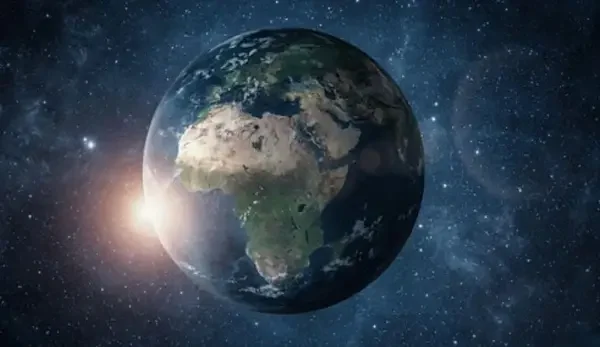Science Mysteries.
Science and the unknown, questions that baffle even the brightest minds. Believe it or not, modern science has yet to explain many phenomena.
While scientists try to present certain ideas to the public as truths, one must wonder: are they genuinely accurate, or are they merely speculative theories?
Science Mysteries.
There’s no denying that scientists have made incredible discoveries and solved countless mysteries that have puzzled humanity for thousands of years. But when it comes to ultimate truths, how much do we really know?
As Richard Feynman, a renowned physicist, once said: “The first principle is that you must not fool yourself—and you are the easiest person to fool.”
Skeptics often argue that scientists may deceive themselves—whether due to ignorance or career preservation—and blame others, such as climate scientists, cosmologists, or virtually anyone responsible for answering critical questions.
This raises a fascinating query: how can we ensure that we aren’t fooling ourselves in our quest for knowledge?
Let’s explore five scientific mysteries that remain unsolved to this day.
Science Mysteries, how Did Life Begin?
About 3.7 billion years ago, the first simple single-celled organisms emerged on Earth. Before that, there existed the so-called “building blocks of life.”
However, scientists are still uncertain about where these building blocks came from.
 One theory suggests that Earth had the perfect conditions for these blocks to form naturally. Another theory posits that these building blocks arrived from space, perhaps carried by meteorites or comets.
One theory suggests that Earth had the perfect conditions for these blocks to form naturally. Another theory posits that these building blocks arrived from space, perhaps carried by meteorites or comets.
Science Mysteries and mystery of Water.
Where did Earth get its vast amounts of water? Popular theories suggest that icy asteroids or comets brought water to the planet.
A recent study of the 4.6-billion-year-old Winchcombe meteorite, which fell in England in 2021, supports this idea.
Despite progress, the precise origins of life’s essential ingredients carbon, hydrogen, nitrogen, oxygen, phosphorus, and sulfur—remain elusive.
Moreover, why are these elements abundant on Earth but scarce on other planets in our solar system?
Science Mysteries, How Did the Universe Begin?
We know the Universe is infinite, yet it is expanding. This paradox is difficult to grasp because expansion suggests the presence of space outside the Universe but any such space would itself be part of the Universe.
The Big Question!
What existed before the Universe? Did it have a beginning, or has it always existed?
The Big Bang theory explains the evolution of the Universe but not its origin. After all, how can something emerge from nothing? Even if we accept the Big Bang, we must consider what predated it and in what form the Universe existed beforehand.
Science Mysteries, What Happens Inside Black Holes?
Unlike stars or planets, black holes have incredibly strong gravity so strong that even light cannot escape. But what lies inside a black hole?
Physicist Stephen Hawking suggested that objects falling into a black hole don’t actually reside within it but become suspended at the event horizon. This notion challenges our understanding, as the event horizon exists outside the black hole itself.
Einstein’s theory of relativity revealed that black holes form when massive stars collapse, becoming infinitely dense. However, scientists now believe that quantum physics, rather than relativity, holds the key to understanding these enigmatic objects.
Science Mysteries, How Will the Universe End?
The Universe’s end is as mysterious as its beginning. According to some scientists, its fate depends on unknown factors like its shape and density.
Will the Universe Ever End?
Many astronomers believe that due to dark energy, the Universe will continue expanding indefinitely. If the Universe has no beginning, it may also have no end.
While this might sound reassuring, it’s not for Earth’s inhabitants. Scientists are confident that our planet will have an end, as the Sun, like any star, will eventually die. Before that, the Sun will expand, potentially making distant planets like Pluto habitable though this remains speculative.
Science Mysteries, Is There Intelligent Life Beyond Earth?
Scientists have long pondered whether intelligent extraterrestrial life exists, but no definitive proof has been found.
Given the vast number of planets in the Universe, it seems likely that life exists somewhere. Yet, we lack concrete evidence of such life on the many exoplanets identified as potentially habitable.
The Fermi Paradox
The Fermi Paradox highlights the contradiction between the high probability of extraterrestrial life and the lack of evidence for it. Possible explanations include:
Intelligent life is rarer than we think. Civilizations are unwilling to share their existence. Signs of extraterrestrial life exist, but we are unable to perceive or interpret them.
Life regularly emerges and disappears across vast distances and timescales, making encounters unlikely. Humanity may be the first advanced civilization to evolve.
What Do We Know About Signs of Extraterrestrial Life?
Although extraterrestrial life has not yet been discovered, scientists have identified several factors and findings that indicate the possibility of life elsewhere in the universe. Here are the main signs and indicators we know so far:
Exoplanets and Habitable Zones
Scientists have discovered more than 5,400 exoplanets (planets outside our Solar System), and many of them are located in so-called “habitable zones.”
• A habitable zone is the distance from a star where the temperature is suitable for liquid water to exist on a planet’s surface.
• For example, exoplanets Proxima Centauri b and the planets in the TRAPPIST-1 system are considered promising candidates for hosting life.
Science Mysteries, Chemical Signatures in Atmospheres.
Scientists search for biosignatures, or chemical compounds, that could indicate the presence of life:
• Oxygen (O₂): If it persists in a planet’s atmosphere over long periods, it could signify photosynthetic processes.
• Methane (CH₄): While natural sources such as volcanoes can produce methane, most methane on Earth is generated by biological processes.
NASA telescopes like the James Webb Space Telescope are equipped to analyze the presence of these compounds in exoplanet atmospheres.
Science Mysteries, Extremophiles on Earth.
On Earth, there are life forms capable of surviving in extreme conditions:
• Bacteria that thrive in geysers, volcanoes, glaciers, and deep-sea hydrothermal vents.
• This proves that life can survive in extreme environments similar to those on Mars, Europa, or Enceladus.
Water – The Foundation of Life.
Water is considered essential for the existence of life, and it has been found:
• On Mars’ surface and underground: In 2020, subsurface water lakes were discovered near the planet’s south pole.
• On Saturn’s moon Enceladus and Jupiter’s moon Europa: Both moons have ice layers with geysers emitting water vapor and organic materials.
Science Mysteries, Organic Compounds on Celestial Bodies.
Organic compounds, which form the basis of life’s chemistry, have been found:
• In meteorites: For instance, the Winchcombe meteorite contained organic molecules consistent with those found in biological processes.
• On asteroids: Japan’s Hayabusa2 mission returned organic molecules from asteroid Ryugu to Earth.
• On Mars: NASA’s Curiosity and Perseverance rovers have detected organic compounds on the Martian surface.
Radio Signals and the Fermi Paradox.
• Scientists, such as those at the SETI Institute, analyze radio signals from space to search for traces of intelligent life.
• Some unexplained signals, such as the Wow! signal (1977), continue to spark debates about whether they originate from extraterrestrial sources.
The Great Filter.
Some scientists propose the existence of a “Great Filter”—an insurmountable barrier that prevents the development of life or communication between intelligent beings. This filter could be:
• The process of life emerging, which may be extraordinarily rare.
• The self-destruction of civilizations before they reach advanced technological levels.
Are We Simply Searching the Wrong Way?
There is a possibility that extraterrestrial life exists but is so different from our conceptions that we fail to recognize it:
• It may be based on chemistry that doesn’t rely on carbon or water.
• It could exist in dimensions or planes of reality beyond human perception.
Science Mysteries, What Does This Mean?
We know enough to conclude that extraterrestrial life is possible, and that the universe is diverse and full of surprises. However, the lack of clear evidence reminds us how small a fraction of the cosmic puzzle we have yet solved.
With advancing research and modern technologies, such as new-generation telescopes, we can expect significant discoveries in the coming decades.
Final Thoughts
These scientific mysteries spanning life’s origins, black holes, the Universe’s destiny, and extraterrestrial existence remain unresolved. If these questions intrigue you, perhaps it’s time to dive into the fascinating world of science and seek answers yourself. Have a great day exploring the unknown!
Have a Great Day!




Skeptics often argue that scientists may deceive themselves—whether due to ignorance or career preservation—and blame others…Yes is it!